- Home
- Elizabeth Goudge
Gentian Hill Page 5
Gentian Hill Read online
Page 5
If the chanting ceased they stopped dead in their tracks, together with the seagulls wheeling behind the plough. That chant seemed to set them all in motion, as it was said the singing of the stars kept the whole universe swinging on its course.
There was no mystery about the origins of Madge. One of many children, she had been sent to the poorhouse on the death of her parents as a child of ten, and twenty years ago had come to Weekaborough Farm and had worked there ever since. The first kindness she had ever met with had been shown her by Father and Mother Sprigg, and she was devoted to them and Stella. She was a freckled, buxom, snub-nosed creature who laughed a great deal, sang at her work, but said very little. No one had ever been able to teach her to read, write, or subtract two from five without disaster, but in the arts of the stillroom and the dairy she had not her equal in the whole of the West Country.
Seraphine was a sleek tabby of an unusually domesticated appearance. Though three stable cats were kept to deal with the outside rats, she was the only house cat. She was supposed to deal with the inside mice, but she was so busy rearing kittens that she seldom had time to attend to mice. No cat ever had so many kittens as Seraphine. Upon the first day of her arrival at the farm as little more than a kitten herself, Father Sprigg had happened to read aloud the command, "Be fruitful and multiply," at evening prayers, and it seemed that she
had taken it very much to heart.
lt is difficult to do justice to the dog, Hodge. Eight years ago a very noble and aristocratic hound of the name of Agamemnon had strayed from one of the great houses of the neighborhood, Cockington Court, and gone for a little outing on his own. It was an exceptionally lovely spring, and he had felt restless. Pacing along a flowery lane in the neighborhood of Weekaborough Farm, he had espied through a gate Father Sprigg and his sheepdog Gypsy, inspecting the lambs gamboling in a field of daisies. Gypsy was an exquisite creature with melting dark eyes, a plumey tail, feathered heraldic feet, and long black silky hair everywhere upon her body except upon her chest, where it was creamy white. Happening to glance over her shoulder just at the moment when Agamemnon was looking through the gate, her melting eyes met his, and
Agamemnon was undone. The story of Cophetua and the beggar-maid repeated itself, and Hodge was the result.
It might have been thought that the offspring of so handsome an aristocrat and so beautiful a beggar-maid would have been a lovely creature, but unfortunately such was not the case, for Hodge had showed no discrimination as to where he put what. The creamy waistcoat handed down to him from his mother was worn not on his chest but on his back, where it looked odd upon the smooth brown body which was his paternal legacy. He had his father’s stature and moved with his father’s dignity, but it consorted oddly with a ridiculous plumey tail and the long soft ears that flopped upon each side of his great domed forehead. His eyes were his father’s, tawny and somewhat stern, but there was a sweetness of expression about his mouth. He had a character of the utmost nobility; he was wise, brave, loving, loyal, patient, chivalrous, and fastidious in his personal habits. He had only one fault-he was an incorrigible lighter. Mercifully, his chivalry did not permit him to attack an animal smaller than himself, so that as a large dog his battles were not as frequent as they would have been had he been smaller, but he could not see a dog of his own size without attacking, and, now in his middle age, his body was marked all over with the scars of old wounds, one ear was torn, and one eye permanently half shut. These mementos of past conflict, superimposed upon an appearance that at the best of times had been eccentric, had given to Hodge a slightly rapscallion air that was wholly out of keeping with the nobility of his character. He was therefore sometimes misunderstood by those who were not intimately acquainted with him. But not by Stella, for she knew better than anyone else the worth of Hodge.
They talked little as they ate their suppers, for they were all tired after a day of hard labor that for the adults had started at four o’clock in the morning. What little talk there was concerned some vagabond who had come to Father Sprigg in the orchard, asking for work.
"Never seen such a scarecrow," said Father Sprigg. "Looked as though he hadn’t the strength to dig a sack of potatoes. A good-for-nothing scoundrel, to my mind."
"Couldn’t you have given him work, Father?" asked Stella pitifully. She hated to think of even a good-for-nothing scoundrel being turned away from Weekaborough Farm. "Or food?"
“No," said Father Sprigg shortly. "Escaped from the press gang or a prison camp, from the looks of him. I’ve no mind to get myself into trouble with authority."
"Did Hodge think he was a good-for-nothing?" asked Stella.
"Hodge was not there," said Father Sprigg. "Hodge had gone with Sol to bring the cows home. And isn’t my judgment as good as Hodge’s, I’d like to know?"
Stella opened her mouth to say that in her opinion it was not, but Mother Sprigg cut her short. "There, love, hold your tongue and sup your broth."
Stella did as she was told, for Mother Sprigg’s onion broth was the especial flowering of her genius, and it would have been sacrilege to have partaken of it otherwise than in reverent silence. Besides the onion and stock, she put oats into it, cloves, a bayleaf, and fresh milk. And the apples were baked to a white froth, and the clotted cream was the color of buttercups.
Mother and Father Sprigg, Stella and Madge, sat at the table, with Hodge and Seraphine one on each side of Stella’s chair, expectant of the tidbits which she always managed to smuggle down to them, but old Sol stayed in his chimney corner with his bowl of soup upon his knee. His methods of absorbing nourishment were all his own, and it was thought better that he should put them into practice in comparative
privacy. But he listened to the little that was said, and now and then his low, appreciative chuckles rumbled from the chimney corner. That chuckle was one of the distinctive sounds of Weekaborough, like Madge’s singing, Hodge’s deep bell-like bark, the striking of the grandfather clock, the click of Mother Sprigg’s needle against her thimble, the ring of Father Sprigg’s heavy boots upon the stone floors, and the
rustle of the wind in the apple trees. In years to come, when she was away from Weekaborough, Stella would remember these sounds, and her recollection would harmonize them into music that would sing like a lullaby in her ears and carry her back to the farmhouse kitchen. She scarcely realized now, of course, that she was exceptionally happy and beloved, but she glowed like a rose as she sat there in the soft candlelight eating her apples and cream.
2
When supper was finished, Mother Sprigg, Madge, and Stella quickly removed the dishes while Father Sprigg, sepulchrally clearing his throat, walked with heavy deliberate tread to the dresser, took the Book from inside the willow pattern soup tureen that was never used except to hold the Book, carried it back to the table, and laid it down carefully before his chair. There he seated himself, took off his spectacles, polished them on his scarlet handkerchief, readjusted them on his beak of a nose, wetted his finger, and slowly turned the pages until he found the pressed carnation that marked the place. Mother Sprigg, Madge, and Stella reseated themselves about the table with hands reverently folded in their laps, and Sol in his chimney corner cupped his right ear in his hand.
The only books at the farm were the Bible and the family Prayer Book, and Father Sprigg read one chapter of the Bible aloud to his household every evening. He worked solidly through from Genesis to Revelations, taking the difficult words with the same courage with which he took a five-barred gate in the hunting Held, charging as fast and furious as his own bull through the more indelicate passages of the Old Testament, happy in the New Testament with the parables of sowing and reaping and harvesting and with the shepherds in the fields, but making his way through the last chapters of the gospels with stumbling tongue, his ears scarlet with distress, humiliated by his inability to read such a story as it should be read, but shirking nothing whatever from the first page of the Book until the last.
What his wife
and Madge and Sol made of it all, what he made of it himself, it would have been difficult to say. Perhaps to them it was mainly a soporific before bedtime, to him one of those duties which from generation to generation fall to the master of the house and must be performed with constant patience.
But to Stella this nightly reading was glory, enchantment, and anguish. Sitting there so demurely, her eyes cast down, her hands folded, she gave no outward sign of her excitement, but the blood drummed in her ears at the old tales of adventure, of battle and murder and sudden death. She was one of the trumpeters who blew their trumpets about the walls of Jericho. She stood with the watchman on the tower and saw the cloud of dust whirl up in the distance and heard him cry
aloud the dreadful tidings, "The driving is as the driving of Jehu the son of Nimshi; for he driveth furiously." She held her breath while that splendid, wicked woman Jezebel painted her face and tired her head and looked out of the window to greet her murderer. She mourned with David over Absolom. "Would God that I had died for thee, my son, my
son." She listened with Elijah to the still small voice that came after the whirlwind and the fire, she gazed upon the mighty seraphim with Isaiah, she was with Daniel in the lions’ den, and she wept with Ruth in the harvest fields far from home.
The New Testament she could hardly bear, so great was her rage at what they did to Him. She could scarcely enjoy the Baby in the manger, the wise men with their gifts, the little children coming to be blessed and the sick folk to be healed, because of what was coming. This King, crowned with thorns instead of gold, and helpless on a gallows, had a kind of royalty and power that she dared not as yet even try to comprehend; she was just sickened and infuriated. She was not much cheered by the Resurrection stories; to her they were ghost stories and they scared her. She had a feeling, now and then, that the part of the Bible which now so frightened her would one day come to mean more than all the rest of the Book put together, but that time was still a long way off. She recovered herself in the Acts and Epistles, though that
was about all she did do, the story-telling there being upon the meager side, but in the Book of Revelations she was at home again, a child once more in this fairyland of magical beasts and a city built all of jewels.
But all through the Book, even in the dreadful parts, the language would now and then suddenly affect her like an enchantment. The peculiarities of Father Sprigg’s delivery worried her not at all. It was as though his gruff voice tossed the words roughly into the air separate particles of no great value, and immediately they fell again transmuted, like the music of a peal of bells, or raindrops shot through with sunshine, and vista upon vista of unobtainable beauty opened before her mind. It was a mystery to Stella that mere words
could make this happen. She supposed the makers of these phrases had fashioned them to hold their visions as one makes a box to hold one’s treasure, and Father Sprigg’s voice was the key grating in the lock, so that the box could open and set them free. But this metaphor did not take her very far. That transmutation in the air still remained as unexplainable as the sudden change in herself, when at the moment of the magical fall her mind became suddenly sparkling with wonder, and her spirit leaped up inside her like a bird. She wondered sometimes if the others felt the same. She had never looked to see if their faces changed when the brightness fell from the air, but she did not suppose they did, nor hers either. And they did not say anything, but then neither did she. This was probably one of those many queer experiences that human beings could not speak of to each other, because though words could be formed into a casket to hold visions, and could be at the same time the power that liberated them, they seemed of very little use when one tried to use them to explain to another person what it was they had set free. Words were queer things, Stella decided, to be at
once so powerful and so weak.
For the last ten days Father Sprigg had been wading through Deuteronomy, and Mother Sprigg and Madge had dozed a bit. But not Stella. There had been Ogg the King of Bashan, the last of the giants, and his vast bedstead. And then there had been the Ammonites who dwelt in the mountains and came out against you and chased you, as bees do, and you returned and wept before the Lord. Ogg had stalked through Stella’s imagination, and the Ammonites had buzzed through it for days. And now tonight, in the eleventh chapter, the tossed words sparkled and fell and the brightness was with her again. "It is a land of hills and valleys, and drinketh water of the rain of heaven. A land which the Lord Thy God careth for; the eyes of the Lord Thy God are always upon
it, from the beginning of the year even unto the end of the year."
It was her own West Country that Stella saw, with its round green hills dotted with the sheep, and the stream winding in and out between them, and down in the sheltered valleys were the orchards and ploughed fields of rose-red earth, the homesteads and the old grey churches. She saw the sun and rain sweeping over the land, and the great arc of the rainbow in the sky, and it was as though the earth lifted itself to drink of the sun and the rain, and, even as she watched, the corn sprang green in the furrows, the orchards frothed with blossom, and the perfume of many flowers and the singing of a multitude of birds rose up like incense to the God Whose eyes, looking upon it, had given life. There was a reverse side to the picture, a terrible one. If God were to weary and glance away, that would be the end of light and life; darkness and chaos would come again. But then God did not weary.
From the beginning of the year until the end of the year, the light of His eyes streamed down and the life of the earth streamed up. Dazzled, Stella saw the light and life meeting, mingling, looked again and saw her familiar countryside slowly transformed by the union, saw it become another country, the same yet different, the symbol becoming the actual, the shadow reality, the dream the fact of the promised land.
The brightness faded, and for the first time she looked at the others. It was old Sol whom she looked at first, and his attitude had changed. He was leaning sideways, to bring his ear and cupped hand close to Father Sprigg’s voice, and he had lifted his head a little, as a man does who looks into the distance. Then she looked at Mother Sprigg and Madge. Mother Sprigg was dozing, and Madge’s face wore the curiously vacant look that it always had when she was not engaged in the active work that was her life. Then she looked back again at old Sol, and this time, feeling her gaze, he looked at her, and he smiled and she smiled. So old Sol saw things too. Of course. She ought to have known. That chant with which he kept the oxen moving so rhythmically had made its way into this world from another country.
Father Sprigg closed the Book and they all bent their heads while he repeated the Lord’s Prayer. "Amen!" said Father Sprigg in a voice like a thunderclap when he got to the end. Then he let out a great gusty sigh of relief and profound self-satisfaction, inflated his chest and squared his shoulders. Once more he had performed an uncongenial duty creditably, and the mingled feeling of martyrdom and virtue that
it gave him was pleasantly inflating to the ego. Mother Sprigg rubbed the sleep out of her eyes, and intelligence dawned again in Madge’s face as she got up to set the table for breakfast.
Stella jumped to her feet like a jack-in-the-box, once more right back in the middle of this world. “Seraphine! Hodge! I’ll put them out," she said. Though these favored animals slept in, they had to be put out for a few moments before bed, and this ritual always followed immediately upon the ending of family prayers. Picking up Seraphine, and with Hodge at her heels, she darted through the door to the left
of the fireplace, and down the passage beyond, past the doors leading to the larders, china closet, stillroom and dairy, to the open back door. Here she sent Seraphine spinning out of her arms into the cobbled yard beyond, gave Hodge a vigorous push upon the haunches (neither animal resenting this treatment, which they suffered nightly), and dashed to the china closet and seized a bowl and plate.
Then she flew to the dairy and half filled a bowl with milk, dipping a little out of each full ju
g in a cup, so that none of it should be missed. Then she went to the larder where she was occupied a little longer, extracting a bit of something from every dish that stood there and piling it all up on a plate. After that, she carried plate and bowl very carefully out into the yard and hid them in the dark shadows behind the mounting block. As she did so, she heard a low chuckle behind her, smelt a whiff of tobacco, and knew that old Sol was there, waiting to shut the back door. If he knew what she did every night, he never gave her away. She returned to the back door, stepping now very demurely and with her head held arrogantly high. "Hodge?" she called to the shadows by the well in the center of the yard. “Seraphine?" They reappeared and followed her in. The arrogance left her abruptly as she passed old Sol. "Good night, Sol," she whispered, and gave a little airy jump, light as a bird’s, and left on his cheek
a touch so soft that he did not know whether she had kissed him or caressed his cheek with a fingertip. He growled affectionately and she was gone, arriving in the kitchen slightly breathless, but having been absent for so short a time that Father Sprigg was still winding the clock, Madge setting the table for breakfast and Mother Sprigg lighting the bedroom candles for Stella and Madge .... She and Father Sprigg and Sol would not go to bed just yet, they would sit for perhaps another hour before the fire, talking over the affairs of the farm .... Stella kissed them good night, took her candle, and went out into the hall, Hodge at her heels. Since he was a puppy he had slept on a rug in her bedroom, a proceeding of which Father and Mother Sprigg highly disapproved, but Stella ignored their disapproval with that quiet, sweet obstinacy of which she was a past mistress and against which they
were powerless.
Going upstairs to bed was one of the things which Stella enjoyed. There was a special savor about this moment of leaving the ground floor of the house where the work of the day had taken place, with its attendant hurry and worry, and perhaps misunderstandings and sorrows too, and mounting up away from it all like an angel into heaven. She was sorry for people who lived in small cottages, sleeping on the same

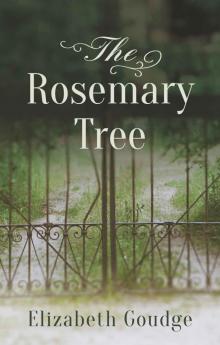 The Rosemary Tree
The Rosemary Tree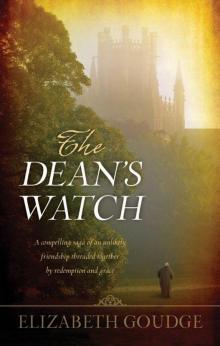 The Dean's Watch
The Dean's Watch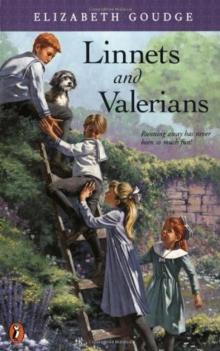 Linnets and Valerians
Linnets and Valerians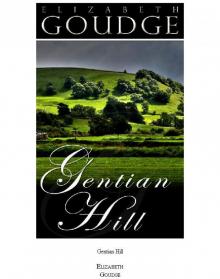 Gentian Hill
Gentian Hill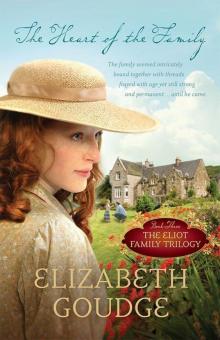 B00DRI1ZYC EBOK
B00DRI1ZYC EBOK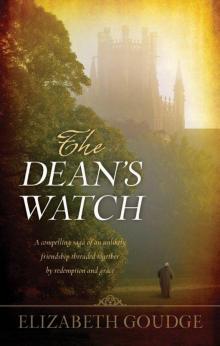 B008O6ZWTG EBOK
B008O6ZWTG EBOK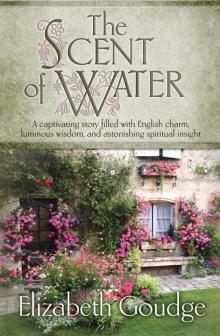 The Scent of Water
The Scent of Water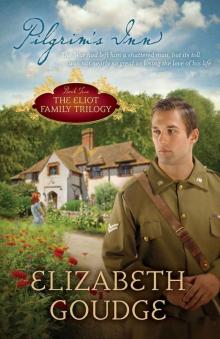 Pilgtim's Inn
Pilgtim's Inn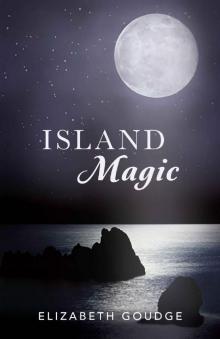 Island Magic
Island Magic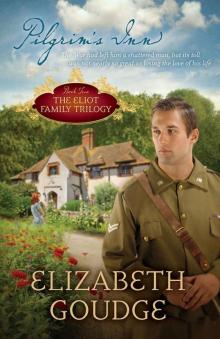 Pilgrim's Inn
Pilgrim's Inn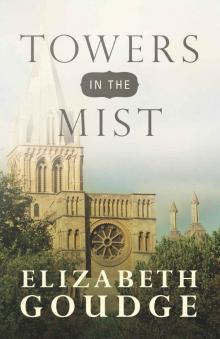 Towers in the Mist
Towers in the Mist Green Dolphin Street
Green Dolphin Street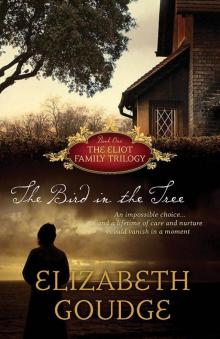 The Bird in the Tree
The Bird in the Tree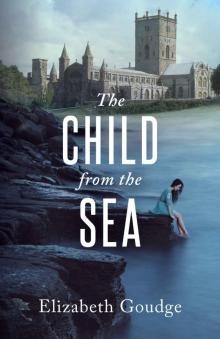 The Child From the Sea
The Child From the Sea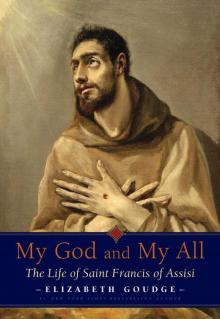 My God and My All: The Life of Saint Francis of Assisi
My God and My All: The Life of Saint Francis of Assisi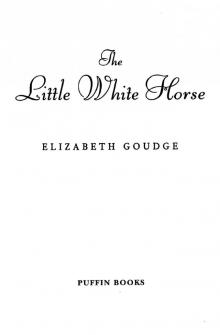 The Little White Horse
The Little White Horse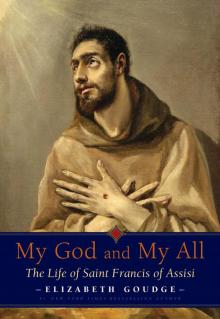 My God and My All
My God and My All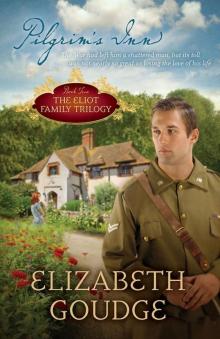 B00CKXCNH8 EBOK
B00CKXCNH8 EBOK